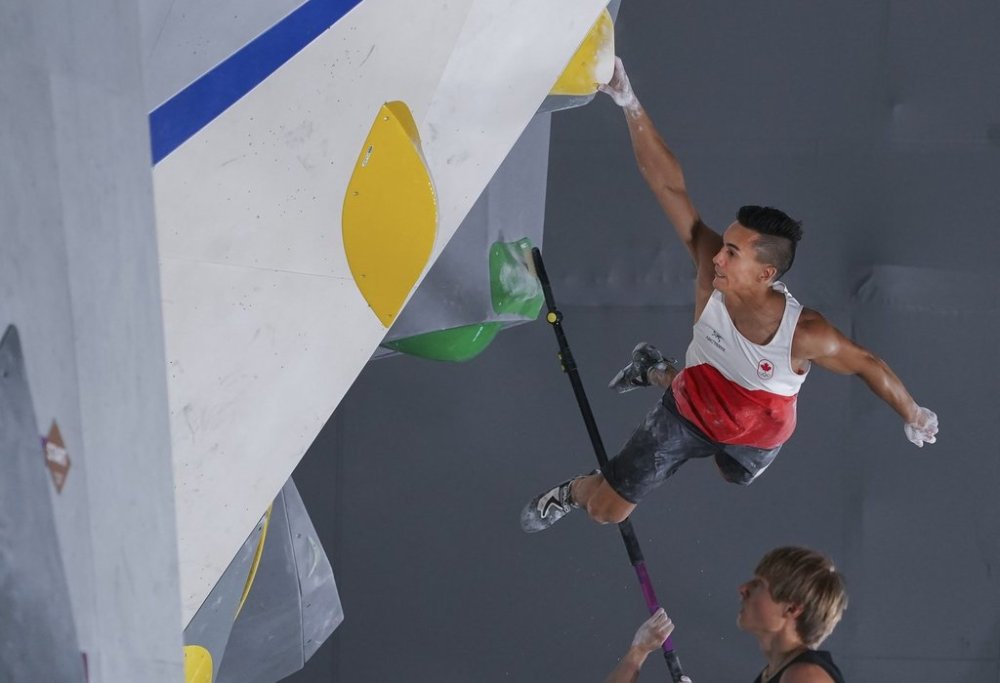From lead to speed. A look at the disciplines of sport climbing
Advertisement
Read this article for free:
or
Already have an account? Log in here »
To continue reading, please subscribe:
Monthly Digital Subscription
$1 per week for 24 weeks*
- Enjoy unlimited reading on winnipegfreepress.com
- Read the E-Edition, our digital replica newspaper
- Access News Break, our award-winning app
- Play interactive puzzles
*Billed as $4.00 plus GST every four weeks. After 24 weeks, price increases to the regular rate of $19.00 plus GST every four weeks. Offer available to new and qualified returning subscribers only. Cancel any time.
Monthly Digital Subscription
$4.75/week*
- Enjoy unlimited reading on winnipegfreepress.com
- Read the E-Edition, our digital replica newspaper
- Access News Break, our award-winning app
- Play interactive puzzles
*Billed as $19 plus GST every four weeks. Cancel any time.
To continue reading, please subscribe:
Add Free Press access to your Brandon Sun subscription for only an additional
$1 for the first 4 weeks*
*Your next subscription payment will increase by $1.00 and you will be charged $16.99 plus GST for four weeks. After four weeks, your payment will increase to $23.99 plus GST every four weeks.
Read unlimited articles for free today:
or
Already have an account? Log in here »
Sport climbing consists of three separate disciplines: speed, bouldering and lead.
Speed climbing is a race up a 15-metre wall, with the fastest climber winning.
Bouldering sees athletes climb a short wall — about 15 feet (4.5 metres) in the Olympics — without ropes but with a large foam mat below in case of falls.

Lead climbing is an endurance challenge that sees climbers try to reach the highest point on a tall wall, clipping into a rope as they go.
At the Tokyo Olympics, all three were part of a single combined event. For the 2024 Olympics, the speed discipline was split off into a stand-alone event with bouldering and lead combined as another event.
In Los Angeles in 2028, all three disciplines will be separate events.
—
This report by The Canadian Press was first published Sept. 29, 2025.

